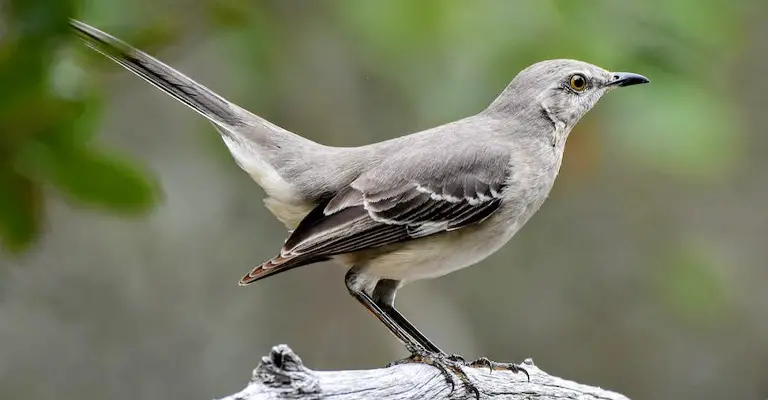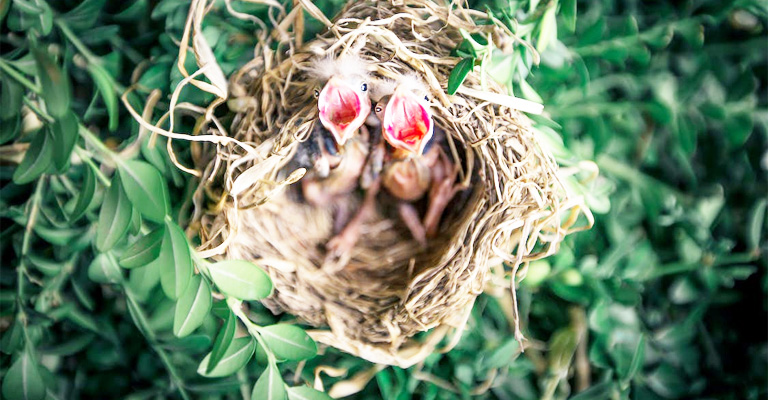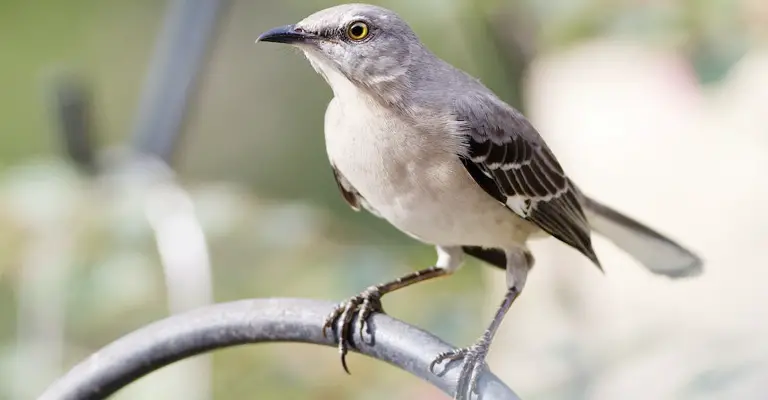Although mockingbirds are peaceful creatures, sometimes they can become aggressive and attack other birds and even humans. These charming creatures are notorious for their aggressive behaviour, often exhibiting territoriality and defensiveness. Ever wondered why mockingbirds are so aggressive?
Mockingbirds become aggressive in defending their territories. With this behaviour, they protect their offspring and nests. Aggressiveness can also be a display of mating competition. Finally, the presence of lead can also make mockingbirds aggressive.
Let’s dive deep and find out all the different reasons why mockingbirds often become aggressive and how to prevent it.

5 Reasons Why Mockingbirds Turn Aggressive
Unlike most other birds, mockingbirds are inherently aggressive. They violently defend their territories and offspring. Here, many environmental factors also come into play.
Below are the common reasons why mockingbirds display aggressive behaviour-
Territoriality and Defense Mechanisms
One of the primary reasons mockingbirds exhibit aggression is their inherent territorial nature. Like many other bird species, mockingbirds defend their nesting territories vigorously.
They perceive any intruder, avian or mammalian, as a potential threat to their offspring or resources.
Mockingbirds employ various defence mechanisms to protect their territories.
They engage in aggressive displays, such as dive-bombing, vocalizing loudly, and spreading their wings to appear larger and more intimidating. These behaviours ward off potential intruders and communicate their ownership of the area.
Protection of Nest and Offspring

Mockingbirds are fiercely protective parents. When nesting, they become even more defensive, often attacking perceived threats with great intensity. This aggression is primarily directed towards predators, such as squirrels, snakes, and other birds that may pose a danger to their nests and offspring.
The instinctual drive to safeguard their young is deeply rooted in mockingbirds’ survival and reproductive success.
By displaying aggressive behaviour, they deter potential predators and reduce the risk of nest predation. This heightened defensiveness during the nesting season is a crucial adaptation that ensures the survival of their offspring.
Mating Competition
In some cases, mockingbirds exhibit aggression as part of their mating competition. During the breeding season, males aggressively encounter rival males to establish dominance and gain access to mates. These territorial disputes often involve intense aerial chases, aggressive posturing, and vocal duels.
The competition for mates is a high-stakes game for mockingbirds. Males strive to defend their territories and attract females through vocal performances and aggressive displays. The most vital and dominant males have a greater chance of mating success, passing their genes to the next generation.
Such intense competition drives mockingbirds to exhibit heightened aggression during the breeding season.
Threat Perception and Fear Response

Like many other avians, mockingbirds have a highly developed sense of threat perception and a rapid fear response.
They quickly perceive potential threats and react aggressively to defend themselves and their territories. This heightened vigilance is essential for their survival in the wild.
The aggressive behaviour of mockingbirds is not limited to other animals but can also be directed toward humans. When they perceive human presence as a threat, they may swoop and dive at intruders, often causing momentary panic.
Such behaviour stems from their territorial nature, fear response, and a learned association of humans with potential harm.
Lead Contamination
Recent research suggests that lead in the environment can contribute to aggressive behaviour in mockingbirds. While mockingbirds are naturally territorial and defensive, exposure to lead can exacerbate these tendencies and increase aggression.
Studies have documented instances where mockingbirds living in areas with higher lead levels exhibited more aggressive behaviours than those in less contaminated environments.
These aggressive behaviours can include increased vocalization, more frequent dive-bombing, and escalated territorial defence against perceived threats.
The exact mechanisms through which lead influences aggression in mockingbirds are still being investigated. However, lead toxicity is believed to affect brain areas responsible for aggression regulation, altering neurotransmitter levels and disrupting standard behavioral patterns.
How to Prevent Mockingbirds from Attacking?

Mockingbirds are generally not considered aggressive or dangerous. While these birds may dive or swoop at perceived threats, they rarely cause harm and are simply trying to defend their territory.
If you’re experiencing issues with mockingbirds attacking, here are a few steps you can take to prevent or reduce their aggression:
Identify the Cause
Determine what might trigger the mockingbird’s defensive behaviour. It could result from proximity to their nest, bright clothing, sudden movements, or even a pet or predator nearby.
Maintain Distance
If you’ve identified the nesting area, avoid approaching it. Give the mockingbirds space and avoid getting too close to their territory.
Wear Neutral Colours
Mockingbirds tend to be more protective and aggressive towards bright or flashy clothing. Try to wear neutral or muted colors to appear less threatening when you’re in their vicinity.
Avoid Sudden Movements
Sudden movements can startle mockingbirds, leading them to perceive you as a threat. Move calmly and slowly when you’re near them.
Create Distractions
If you have a garden or outdoor space where mockingbirds frequent, consider providing alternative food sources like bird feeders. This can divert their attention away from potential conflicts.
Use Visual Deterrents
Placing shiny objects or reflective surfaces near areas where the mockingbirds are nesting can help deter them. Mockingbirds dislike bright lights and reflective surfaces, so hanging CDs, using aluminum foil, or using scare tape can be effective.
Limit Access For Pets
If you have pets that may provoke the mockingbirds, keep them indoors or supervise them closely when outside. This will help reduce potential conflicts.
Remember that mockingbirds are protected under the Migratory Bird Treaty Act in the United States, so avoiding harming them or their nests is essential. It’s generally best to allow them to carry out their natural behaviours while taking steps to minimize any negative interactions.
FAQ
While mockingbirds can exhibit aggressive behavior, it is important to note that not all mockingbirds are aggressive. Aggression levels can vary among individuals, and some mockingbirds may display less aggressive behavior than others.
Mockingbirds become aggressive primarily to protect their territory and offspring. When they perceive a threat to their nest or feeding area, they engage in aggressive displays, such as dive-bombing, chasing, and vocalizing loudly, to deter intruders and defend their territory.
Mockingbirds are known to defend their territory vigorously, and in some cases, they may display aggressive behavior towards humans or other animals. However, actual physical attacks on humans are rare and usually occur when mockingbirds feel threatened or cornered. They are more likely to engage in aggressive displays as a warning rather than direct physical contact.
Bottom Line
That was all about why mockingbirds are so aggressive. Mockingbirds’ aggression can be attributed to a combination of factors, including territorial defense mechanisms, protection of nests and offspring, and mating competition. Threat perception and fear response can also be the reasons.
Understanding these underlying reasons helps us appreciate these birds’ remarkable adaptability and role in maintaining ecological balance. To avoid being attacked by mockingbirds, leave them alone and try to stay away from their territories.